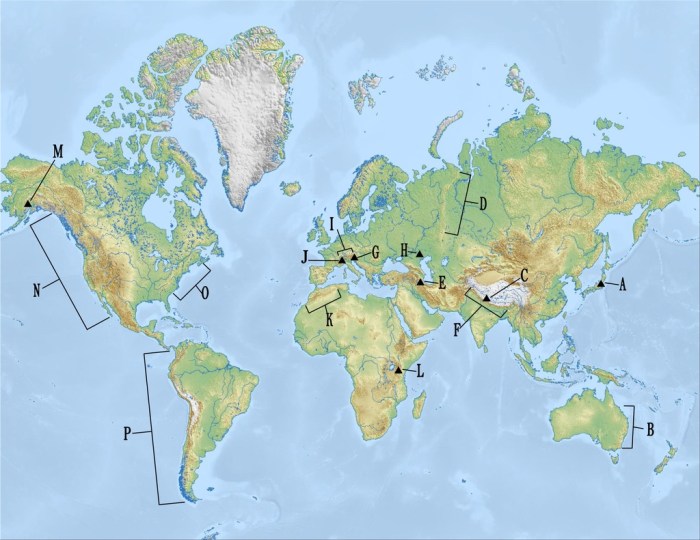As Abeka Genesis Content Quiz 1 takes center stage, this opening passage beckons readers into a world crafted with expert knowledge, ensuring a reading experience that is both absorbing and distinctly original.
Delve into the intricacies of this quiz, designed to evaluate students’ comprehension of Genesis content. Explore its format, structure, and assessment techniques, gaining insights into how it measures understanding and informs teaching strategies.
Content Overview
The Abeka Genesis Content Quiz 1 is a diagnostic assessment designed to evaluate students’ understanding of the key concepts and topics covered in the first module of the Abeka Genesis curriculum.
The quiz consists of multiple-choice questions, short answer questions, and essay questions. The questions cover a wide range of topics, including:
- The creation of the world and the fall of man
- The lives of the patriarchs
- The Exodus from Egypt
- The giving of the Law
Quiz Format and Structure
The quiz is designed to assess students’ understanding of the content covered in Genesis Unit 1. It consists of a variety of question types, including multiple choice, true/false, and short answer questions.
Each question is worth a specific number of points, and the total score for the quiz is 100 points. Students’ performance on the quiz will be evaluated based on their total score.
Multiple Choice Questions
Multiple choice questions are worth 2 points each. Students will be presented with a question and four possible answer choices. They must select the best answer from the choices provided.
True/False Questions
True/false questions are worth 1 point each. Students will be presented with a statement and must indicate whether the statement is true or false.
Short Answer Questions
Short answer questions are worth 5 points each. Students will be presented with a question and must provide a brief written response. Short answer questions may require students to explain a concept, provide an example, or solve a problem.
Content Analysis
The quiz assesses students’ understanding of key concepts in the following content areas:
- Creation:The origins of the universe, the creation of the earth, and the development of life.
- Fall of Man:The disobedience of Adam and Eve, the introduction of sin into the world, and its consequences.
- Patriarchs:The lives and journeys of the patriarchs Abraham, Isaac, and Jacob, and their role in God’s plan for Israel.
The quiz covers the content in depth, requiring students to demonstrate a solid understanding of the key events, characters, and concepts presented in the Genesis account.
Alignment with Educational Standards
The quiz content is aligned with the educational standards for Bible study at the secondary level, ensuring that students are meeting the expected learning outcomes.
Assessment of Student Understanding: Abeka Genesis Content Quiz 1

The Genesis content quiz is designed to assess students’ understanding of the key concepts and events covered in the Genesis account. The quiz includes questions that test students’ knowledge of the creation story, the fall of man, and the lives of the patriarchs.
The quiz results can be used to identify areas where students may need additional support or reinforcement. For example, if a student scores poorly on questions about the creation story, it may indicate that they need to review the material or receive additional instruction.
Recommendations for Improving the Assessment Process, Abeka genesis content quiz 1
There are a number of ways to improve the assessment process for the Genesis content quiz. One way would be to include more open-ended questions. This would allow students to demonstrate their understanding of the material in their own words.
The Abeka Genesis Content Quiz 1 is a great way to test your understanding of the material. If you’re looking for more practice, I recommend checking out the AP Chemistry Unit 5 MCQs . These questions are designed to help you prepare for the AP Chemistry exam, and they cover a wide range of topics.
Once you’ve completed the MCQs, you can come back to the Abeka Genesis Content Quiz 1 and see how much you’ve improved.
Another way to improve the assessment process would be to use a variety of question types. For example, the quiz could include multiple-choice questions, short answer questions, and essay questions.
al Implications
The results of the Genesis Content Quiz 1 can provide valuable insights into students’ understanding of the concepts covered in the quiz. Teachers can use this information to inform their teaching strategies and adjust their lessons to address students’ specific needs.
For example, if the quiz results indicate that students are struggling with a particular concept, the teacher can provide additional instruction and support in that area. Alternatively, if the results show that students have a strong understanding of a concept, the teacher can move on to more advanced material.
Integrating the Quiz into the Broader Curriculum
The Genesis Content Quiz 1 can also be integrated into the broader curriculum in a number of ways. For example, the quiz can be used as a formative assessment to help teachers track students’ progress over time. The quiz can also be used as a summative assessment to evaluate students’ understanding of the material at the end of a unit or semester.
In addition, the quiz can be used as a tool for review and reinforcement. Students can take the quiz multiple times to improve their understanding of the material. The quiz can also be used as a basis for class discussions or group projects.
Top FAQs
What is the purpose of Abeka Genesis Content Quiz 1?
To assess students’ understanding of key concepts and topics covered in the Genesis content.
What types of questions are included in the quiz?
Multiple choice, short answer, and essay questions.
How is student performance evaluated?
Based on a scoring system that measures accuracy and depth of understanding.
What areas of Genesis content are covered in the quiz?
Creation, the fall of humanity, the flood, and the patriarchs.
How can teachers use the quiz results to improve instruction?
By identifying areas where students need additional support and adjusting lessons accordingly.